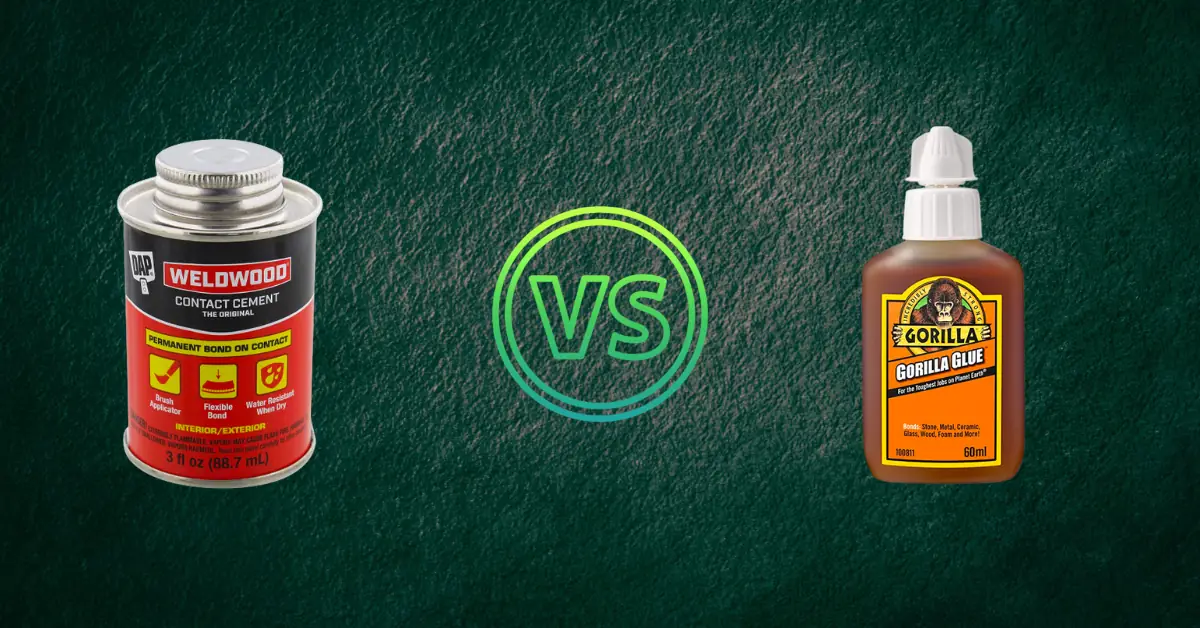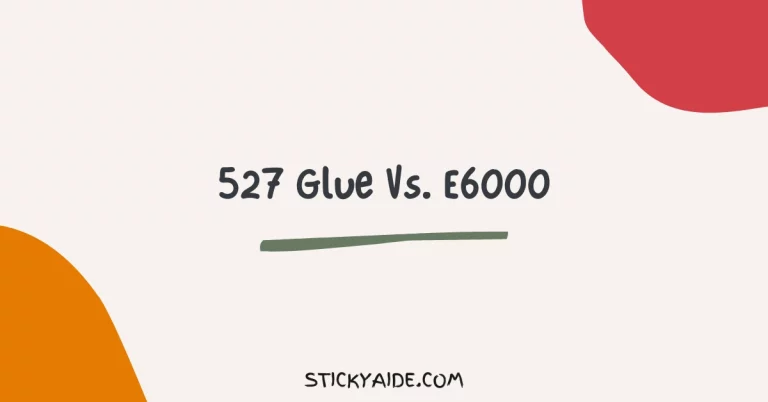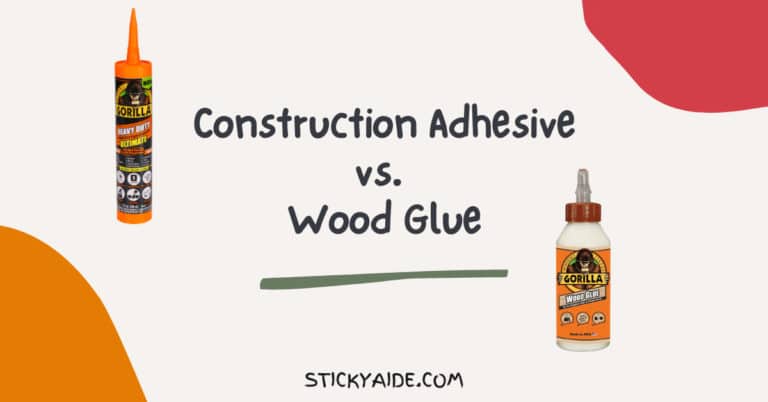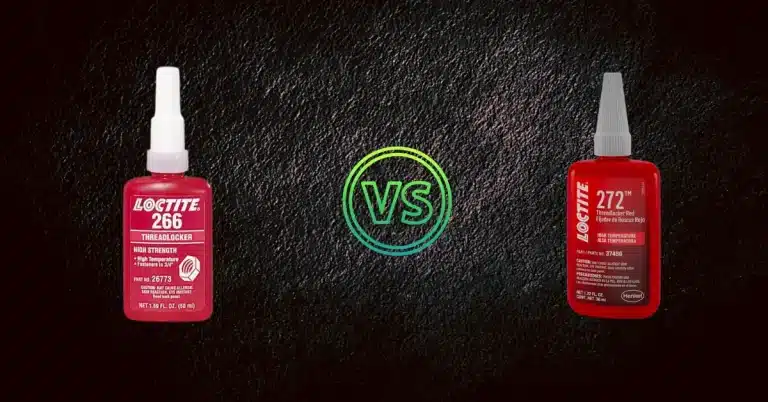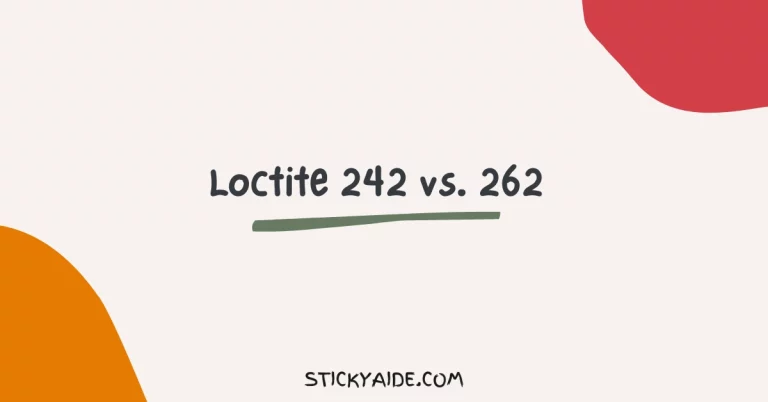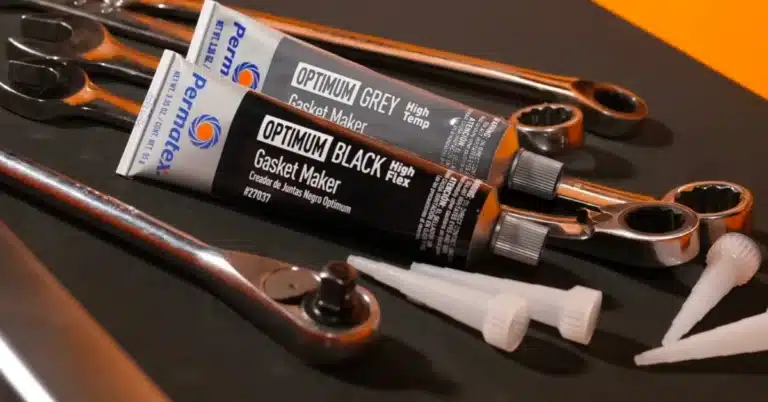When repairing shoes and boots, you have multiple options available, so you might wonder which glue would suit you best. Contact Cement and Gorilla Glue is excellent for repairing and fixing your shoes and their parts.
Both types of glue are excellent choices and have multiple similarities and differences, so if you’re looking for which to go for in the Contact Cement vs. Gorilla Glue debate, look no further because I’ll go over their features, similarities, differences, and more.
Read More: JB Weld Vs. Gorilla Glue
Contact Cement vs. Gorilla Glue
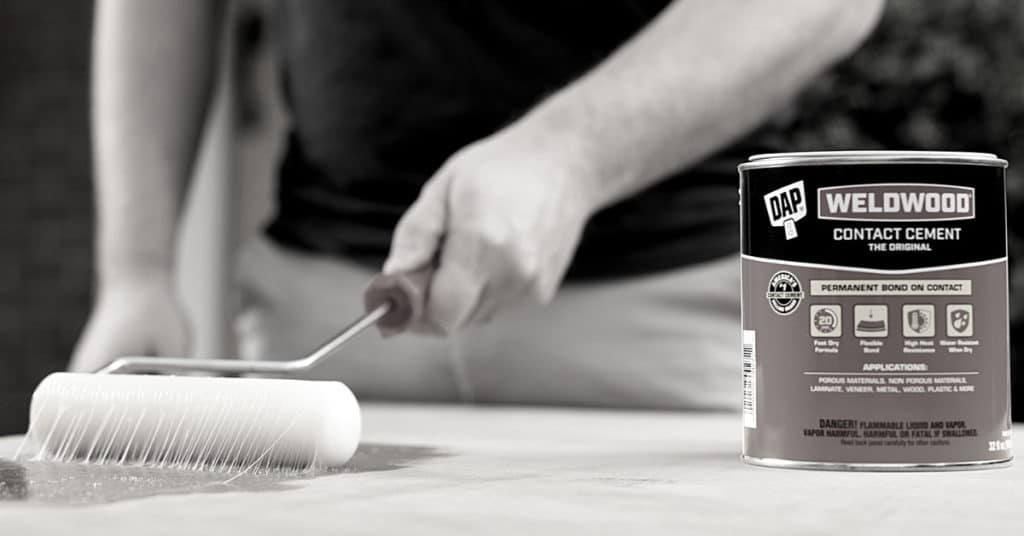
What is Contact Cement?
Contact Cement is an adhesive that comes in solvent and water-based forms and creates a bond between two surfaces on contact. Contact Cement works excellent on various materials like Plastics, Leather, Rubber, or Veneers, making it an ideal choice for multiple purposes.
Furthermore, Contact Cement creates a permanent, long-lasting bond and dries quickly compared to many other types of glue, making it a suitable choice for you if you need a quick repair.
However, the quick drying time can also be an issue since you need to work fast and precisely with Contact Cement since it forms a bond between the surfaces almost straight away, leaving you very little room for error.
Contact Cement creates a strong bond once cured; you can use it for shoes or materials that might come under excessive force or weight. However, Contact Cement can also be difficult to remove once fully cured, so it may not be ideal for you if you plan on future changes or adjustments.
Furthermore, if you use the solvent-based formula of Contact Cement, you must be aware of substrates that can dissolve the glue down the line.
Read More: Gorilla Glue vs. Wood Glue
What is Gorilla Glue?
Gorilla Glue is a strong, instant bonding glue made by Gorilla Glue Co. from Cincinnati, US. Gorilla Glue’s formula is based on polyurethane and has superb bonding quality comparable to Super Glue.
Gorilla Glue works well with various materials, so you can use it to improve your shoes and their components and for many more household repairs. Gorilla Glue works excellently with Wood, Stone, Metal, Glass, Ceramic, Leather, Rubber, and more.
One more advantage of Gorilla Glue is it sets almost instantly and creates a strong, robust bond quickly, which is ideal for you if you’re looking for a quick repair. Gorilla Glue is also water resistant, so you can use it to repair shoes you’ll be using in wet conditions or during rain.
Gorilla Glue is also temperature resistant and can be used during the heat or in places with excessive heat. When it comes to repairing your shoes, boots, or gloves, Gorilla Glue will work excellent when the material is mainly made of Leather or Rubber.
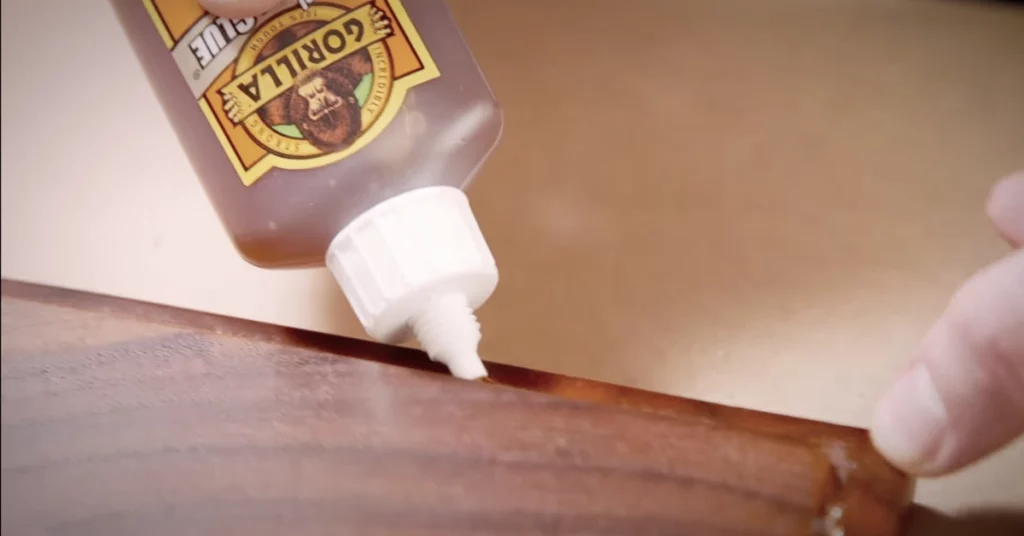
Read More: Contact Adhesive vs. Super Glue
Differences between Contact Cement and Gorilla Glue
Now, I’ll go over the differences between Contact Cement and Gorilla Glue.
Appropriate Materials to Use On
Contact Cement is a versatile adhesive suitable for Rubber, Leather, Plastics, Glass, or Metal.
Gorilla Glue is versatile and works on various materials like – Stone, Wood, Rubber, Glass, Ceramic, Leather, or Metal.
Drying Time
Both of these glues dry relatively faster compared to many other alternatives. However, Gorilla Glue has a faster drying time than Contact Cement.
Gorilla Glue will take less than a minute to dry once you apply it to the surfaces. If you use it to fix the soles of your shoes, it will take around an hour or two.
On the other hand, Contact Cement would take around 5 to 15 minutes to dry, depending on the thickness of the layers you use.
Weather Resistance
Contact Cement generally is less water resistant than Gorilla Glue; however, you can also get unique variants of Contact Cement, like the Du-Bro S-180, which has better water resistance.
Gorilla Glue is water and heat-resistant, making it ideal to use with shoes you’ll be using in wet conditions or heat.
Read More: Contact Cement vs. Contact Adhesive
Can contact cement be used as glue?
Yes, contact cement can be used as glue. It is a strong and permanent adhesive that works well with many different materials. However, it is important to note that contact cement is not suitable for some materials, such as foam and cardboard. Contact cement can also be unsafe to work with, as the fumes are toxic and should not be breathed in.
Is contact cement permanent?
Yes, contact cement is a permanent adhesive. It bonds instantly and cures completely within a few days. It is important to note that once contact cement is used to bond two materials, the bond is almost only possible to break without damaging the materials.
Is contact cement strong?
Yes, contact cement is a strong adhesive. In addition to its quick-drying nature, contact cement creates strong and long-lasting bonds. This makes it especially well-suited for materials such as metals, glass, plastic, rubber, and leather.
Last Opinion
You can’t go wrong with either of the glues in the Contact Cement vs. Gorilla Glue battle since both of them are excellent, versatile adhesives. They both also dry fast; however, Gorilla Glue has an even faster drying time. Gorilla Glue is also good to use if you use your boots in wet conditions since it has better water resistance.

